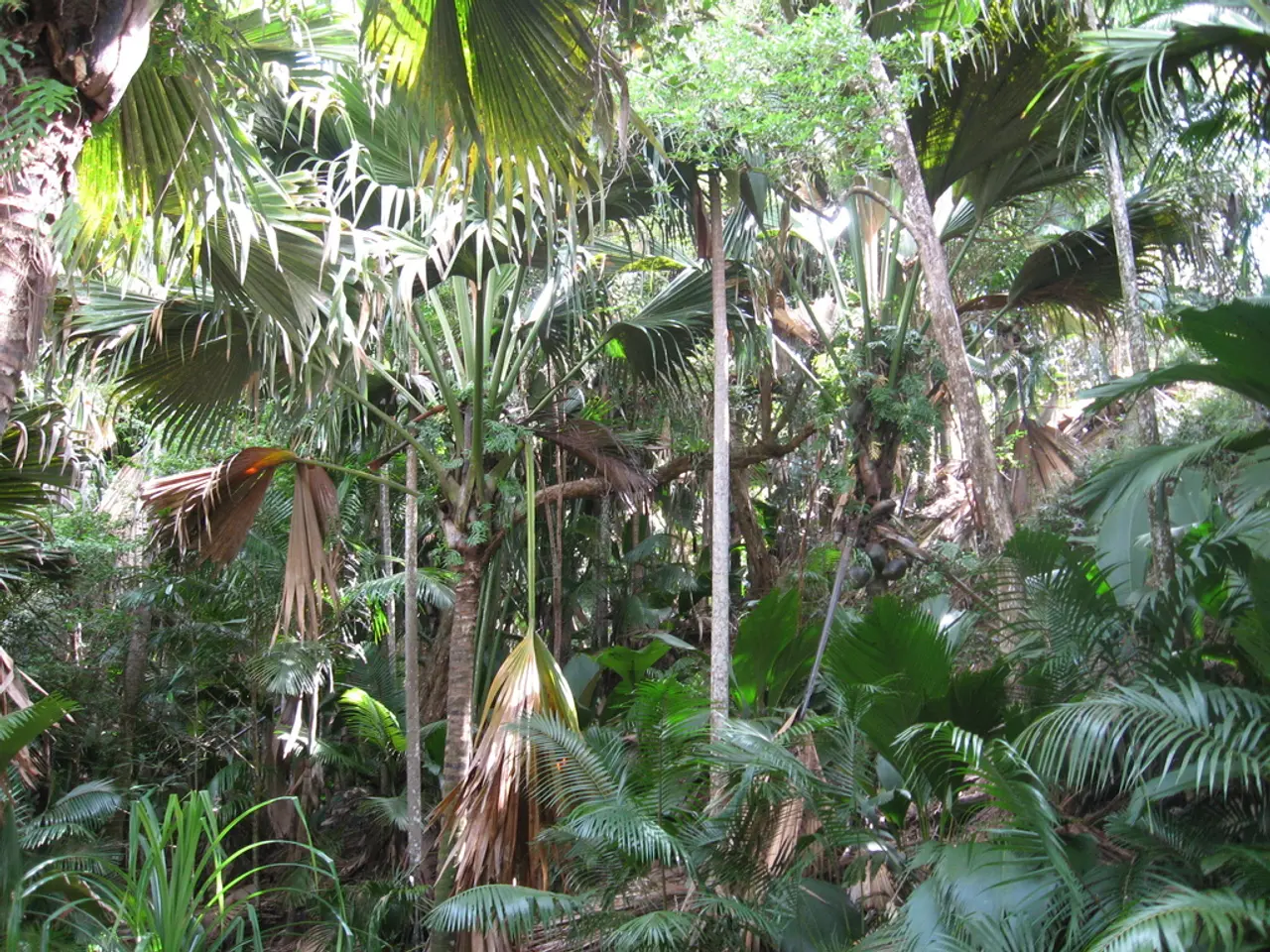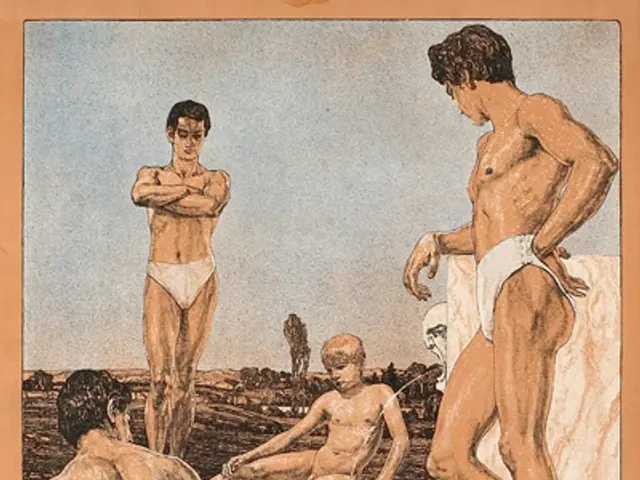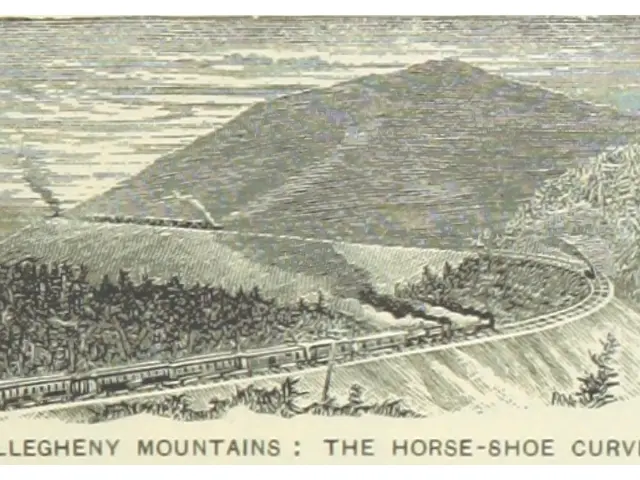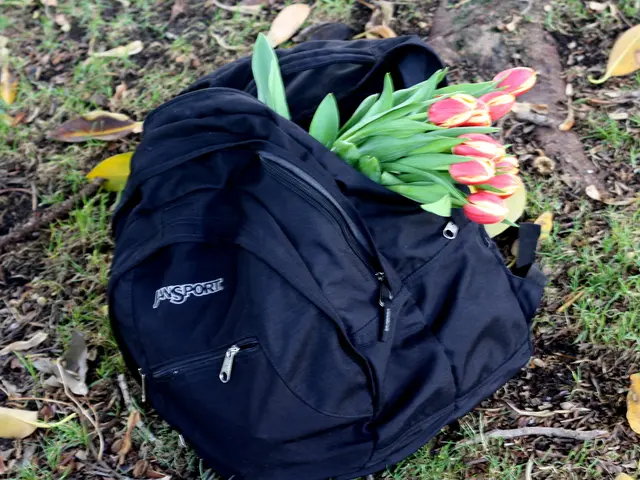Expanding the numbers of Georgia landowners cultivating native vegetation to safeguard native wildlife is crucial.
In the vibrant landscapes of Georgia, a growing movement is encouraging homeowners to plant native plants in their gardens. These greeneries offer more than just aesthetic appeal; they support biodiversity, combat habitat fragmentation, and promote sustainable gardening practices.
Native plants, such as Smooth Phlox, Passionflower, and Sweet Goldenrod, are uniquely suited to the local climate and offer benefits like providing habitat and food for native wildlife. These plants have co-evolved with local species and are essential for their survival, unlike many non-native plants.
One of the key advantages of native plants is their role in reducing habitat fragmentation. Urban development and deforestation reduce and isolate natural habitats, making it harder for wildlife to access food and shelter. Planting native gardens creates stepping stones or green corridors that connect fragmented habitats, allowing wildlife and pollinators to travel shorter distances between vital resources for feeding, breeding, and shelter.
Native plants also contribute to improved soil health and water conservation, reduce erosion, and support a rich diversity of insects, which form the base of the food web for birds, amphibians, and mammals.
Moreover, native plants are low maintenance and sustainable. Because they are adapted to local climate and soil, they require less watering, fertilizers, and pesticides, making them easier to care for and more resilient against pests and diseases.
Native gardens help combat habitat fragmentation by acting as local refuges and resource hubs for native wildlife, especially pollinators, in increasingly urbanized or altered landscapes. By providing continuous food sources, nesting sites, and shelter closer to wildlife populations, these gardens bridge gaps created by human development and support the survival and movement of species critical for ecosystem balance.
Campbell Vaughn, a University of Georgia extension agent, emphasizes the importance of planting native plants, as they are well-suited to the local climate and collaborate well with native wildlife. Consumers prefer native plants once they are aware of their benefits, but large box stores may not carry them or clearly label them.
To help address this gap, supporting local nurseries that grow and propagate native plants is important. In the state of Georgia, 90% of the land is owned by private landowners, while the state owns less than 7% of protected property. By choosing native plants, homeowners can restore habitat for wildlife and contribute to the conservation of native species.
For those interested in learning more about native plant species, the Georgia Native Plant Society offers a list of specific native plant species. Fragrant Sumac, for instance, provides cover and food for birds and small mammals.
In conclusion, planting native plants fosters biodiversity, supports wildlife movement in fragmented habitats, enhances ecological functions, and promotes sustainable gardening practices. This directly helps mitigate the adverse effects of habitat fragmentation on native wildlife.
- Native plants like Smooth Phlox, Passionflower, and Sweet Goldenrod, which are well-suited to Georgia's climate, offer numerous benefits such as supporting biodiversity, combating habitat fragmentation, and promoting sustainable gardening practices.
- These co-evolved native plants provide essential habitat and food for native wildlife, unlike many non-native plants, and help reduce habitat fragmentation by acting as local refuges and resource hubs in increasingly urbanized landscapes.
- By choosing native plants, homeowners can restore habitat for wildlife, contribute to the conservation of native species, and reduce the use of water, fertilizers, and pesticides, making gardening more sustainable.
- Local nurseries that grow and propagate native plants can help bridge the gap between consumers and the availability of native plants, as many large box stores may not carry them or clearly label them.
- In order to support the survival and movement of species critical for ecosystem balance, it is essential to promote the planting of native plants and create continuous food sources, nesting sites, and shelter for native wildlife.




